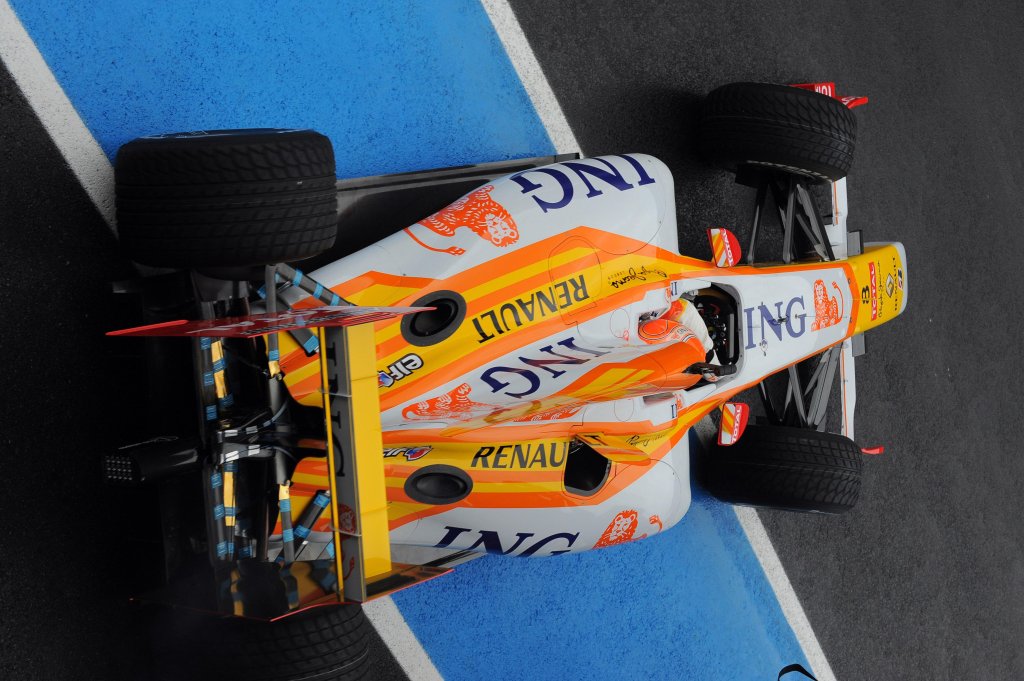Renault have joined Ferrari in expressing fears that the Kinetic Energy Recovery System is both unsafe and expensive. The problem with the new technology is the fact that it is based on an electrical system – so there's always the danger of uncontrollable battery discharge – and could lead to several accidents throughout the season. Also, not having enough time to test the unit both on and off the track is also a problem.
Bob Bell, technical director for the French manufacturer, said that it would not be unlikely for us to see some accidents related to the KERS unit this year. Although they worked hard on developing the unit throughout the last year and the offseason, Renault admit they are still in “unknown territory” when it comes to KERS.
“We are not used to seeing cars with high voltage stickers. I think there will be some accidents this year. It's inevitable. And you'll probably see some mechanics get nasty shocks. Let's hope it's no more than that. The same could be said of marshals,” said Bell.
The sport has done a very good job of trying to minimize the risk, to mechanics, technicians and trackside people, but there is still a risk. It's several hundred volts and the potential to be tens of amps, so it's pretty lethal. And it's DC (direct current), so if you hold it you cannot let go,” added the Renault technical ace.
Also, team principal Flavio Briatore insisted that the introduction of KERS comes at a time when all teams inside the F1 are making huge efforts to reduce costs. And small costs cannot come into one's mind when thinking about KERS development.
“In the end Renault, Mercedes-Benz and Ferrari supply engines to other teams, and we are not making any money - it is costing us but we are doing it for the good of F1. We have the big reduction in the costs of engines, but in another way we have opened the door on something else. We don't know how much it is going to cost us in the end with development, and we don't know if it is dangerous or not - it looks like it is not 100 percent in control,” said Briatore.
Bob Bell, technical director for the French manufacturer, said that it would not be unlikely for us to see some accidents related to the KERS unit this year. Although they worked hard on developing the unit throughout the last year and the offseason, Renault admit they are still in “unknown territory” when it comes to KERS.
“We are not used to seeing cars with high voltage stickers. I think there will be some accidents this year. It's inevitable. And you'll probably see some mechanics get nasty shocks. Let's hope it's no more than that. The same could be said of marshals,” said Bell.
The sport has done a very good job of trying to minimize the risk, to mechanics, technicians and trackside people, but there is still a risk. It's several hundred volts and the potential to be tens of amps, so it's pretty lethal. And it's DC (direct current), so if you hold it you cannot let go,” added the Renault technical ace.
Also, team principal Flavio Briatore insisted that the introduction of KERS comes at a time when all teams inside the F1 are making huge efforts to reduce costs. And small costs cannot come into one's mind when thinking about KERS development.
“In the end Renault, Mercedes-Benz and Ferrari supply engines to other teams, and we are not making any money - it is costing us but we are doing it for the good of F1. We have the big reduction in the costs of engines, but in another way we have opened the door on something else. We don't know how much it is going to cost us in the end with development, and we don't know if it is dangerous or not - it looks like it is not 100 percent in control,” said Briatore.
